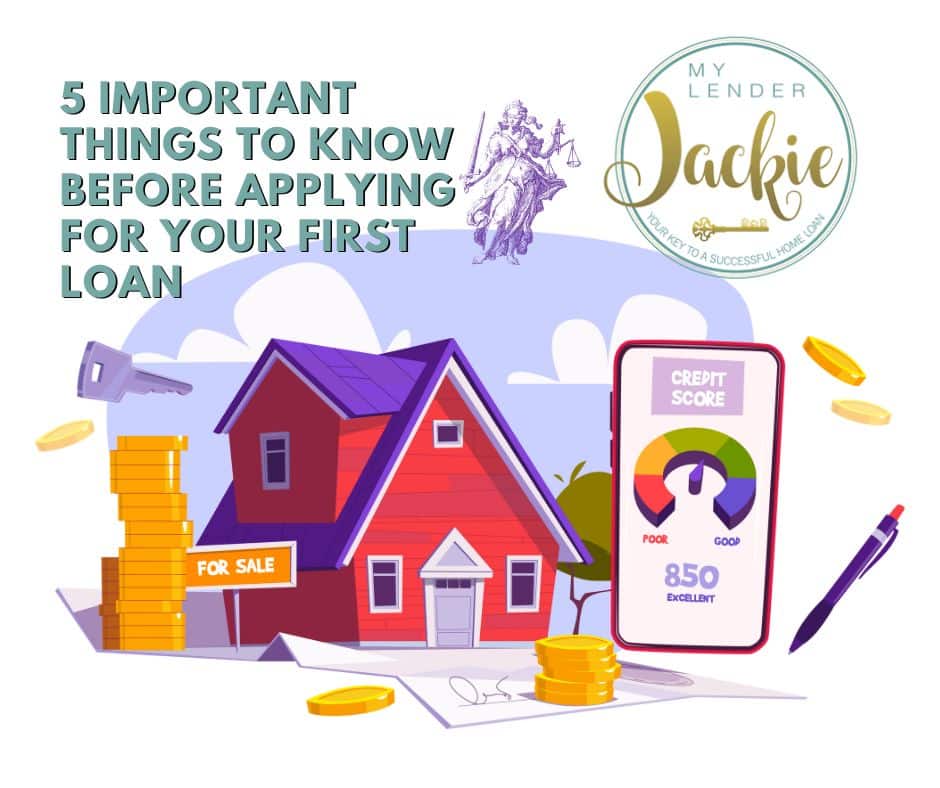There are a few things to consider when applying for your first loan, including checking over your credit to compare it with your monthly debt payments. If you are applying for your first personal loan it is important to have certain knowledge so you can provide this said information to potential lenders. Some of these said things to know include your income, with others that you will want to look into before applying for your first loan, such as knowledge of your current credit score.
Continue to read to find out 5 important things to know before applying for your first loan to avoid any financial troubles.
5 Important Things to Know Before Applying for Your First Loan
1. Credit Score & History
Both a good credit score and history provide potential lenders the proof that you are capable of paying off your credit obligations on time. Essentially, the better your credit history, the better chance you have a chance of securing personal loans under favorable terms. The best terms of financial loans can save you thousands over the life of your loan.
Before you apply for a personal loan, check your credit score and certain reports for errors that could lower your score. If you are starting and your credit is not in great shape, it is always best to hold off on applying for a loan. Instead, work hard to improve your credit.
2. Income
The rate of pay that you take home affects your ability to pay off a first loan on time, so it is important to provide proof of income for your application. If you are an employee, you will need your paystubs at hand. For self-employed applicants, you will need tax returns for a minimum of the past two years along with bank statements that show your income.
It is important to know just how much you bring home each month to know whether or not you are capable of affording monthly loan payments. Include all of your income sources, including a spouse’s income, any potential child support, a second-paying job, or a freelancing income.
3. Monthly Debt Payments
Your total income is only one small part of the equation. It is also important to know your monthly debt obligations when applying for a loan. A loan application will most likely require you to list obligations, such as rent or mortgage payments and/or existing payments toward credit card(s) or other current debts.
4. Assets and Additional Applicants
Concerned about the potential financial pressures of paying off a loan by yourself? Consider a secured loan, or a joint or a co-signed loan, you will want to gather more information first. To understand secured loans, it is important to understand that they are backed by an asset. For example, a car or an investment account.
There will need to be proof that you own your asset on your application for a loan. Collateral can help guarantee to get the loan, meaning there is a possibility of qualifying for a lower interest rate. The downside of this is that you may risk losing the asset if you fail to make any payments.
If you want to apply for a joint or co-signed loan, you will likely need to provide the same information for your additional applicant as yourself. A social security number and proof of income may be required.
The pro of including someone else on your application, especially if they need to improve their credit, can help you qualify for a personal loan. This person will be held equally responsible for paying off the loan.
5. Employer’s Contact Information
A potential loan lender will more than likely ask for your current employer’s contact information as a reference point to verify income or employment dates.
For more information on First Loan options in Mission Viejo and California please contact me anytime.
If this post was helpful, these might even be more so!
- 50 Ways You Might Get Declined for a Mortgage
- Pros and Cons of Applying for a Mortgage with your spouse
- 5 Steps to Protecting Your Credit Score During a Pandemic
- 5 Things NOT to Say When Applying for a Mortgage
- What to Do if You’ve Been Denied for a Mortgage
- Why Lenders Offer Different Mortgage Interest Rates to the Same Applicant
- New Mortgage Options for Teachers and First Responders
- Reasons Mortgages Get Held Up in Writing
- What Does a Mortgage Lender Look for When they Ask for Bank Statements?
- 3 Items Lenders Hope Not to Find in Bank Statements


